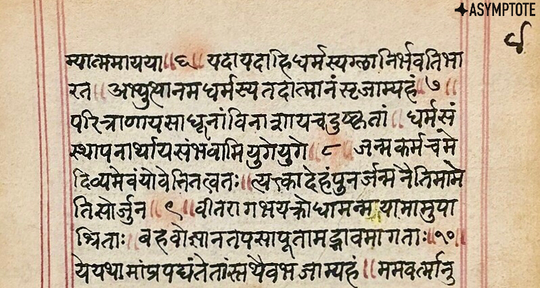If you have yet to fully traverse the sensational depths of Asymptote‘s Summer 2019 issue: “Dreams and Reality,” you can step out on the roadmap written by our blog editors, who have refined their selections—with considerable difficulty—to a handful of their favourite pieces. Between an erudite Arabic mystery, non-fiction from Romania’s foremost feminist writer and theorist, and a tumultuous psychological short story which delves into our perception of sanity, this reading list is a doorway into the vast cartography of this issue, unfurling into the rich imagination and profundity of the heights in world literature.
Something about summertime makes me want to read detective fiction, so I was excited to learn that Asymptote’s Summer 2019 issue, released this past Thursday, features a murder mystery. I was even more intrigued when I learned that the story in question, “Culprit Unknown” by Naguib Mahfouz, was originally written in Arabic. Don’t get me wrong—I enjoy Swedish mysteries just as much as you do—but I think we can all agree that the Scandinavians have had a monopoly on detective fiction in translation for far too long.
“Culprit Unknown,” translated by Emily Drumsta, follows Detective Muhsin ʿAbd al-Bari as he tries to solve a series of grisly murders. Muhsin does everything he can, but each killing is a perfect crime: the murderer leaves not a single trace behind, and as the deaths pile up, the tension in the neighborhood becomes unbearable. Besides pacing the story perfectly, Mahfouz infuses “Culprit Unknown” with light humor and unexpected (but welcome) philosophical musings, as in the exchange below:










